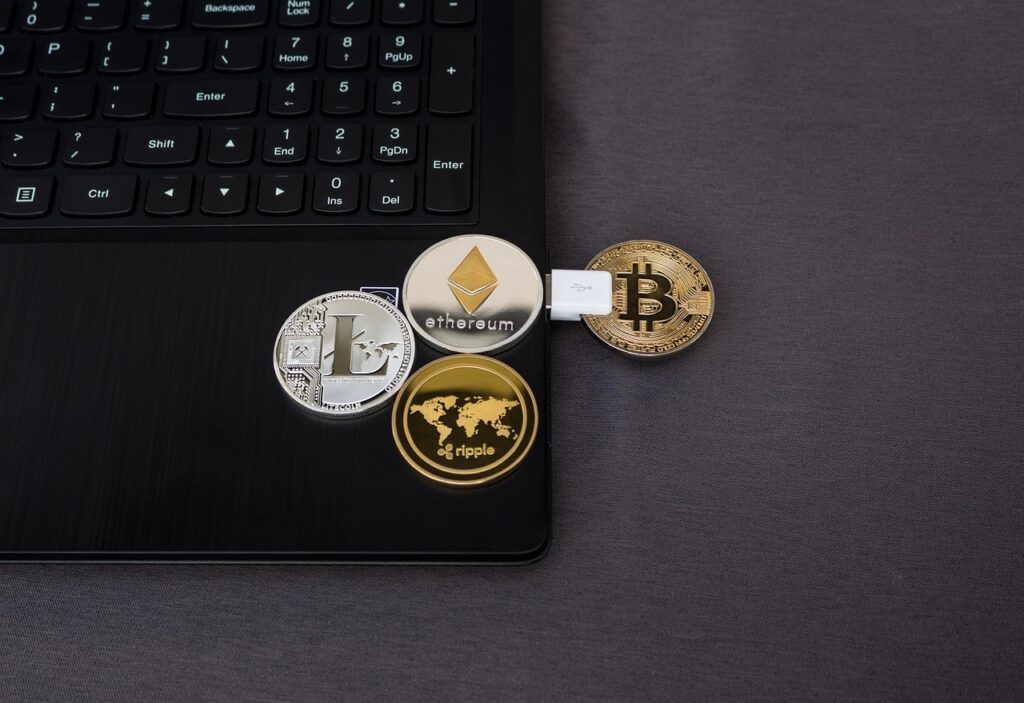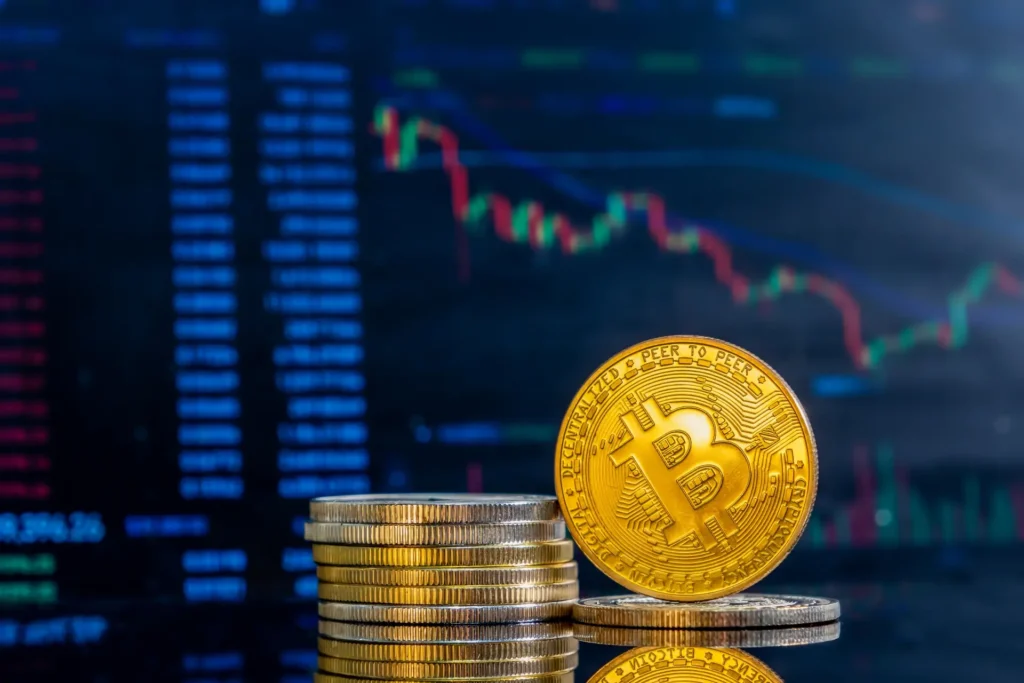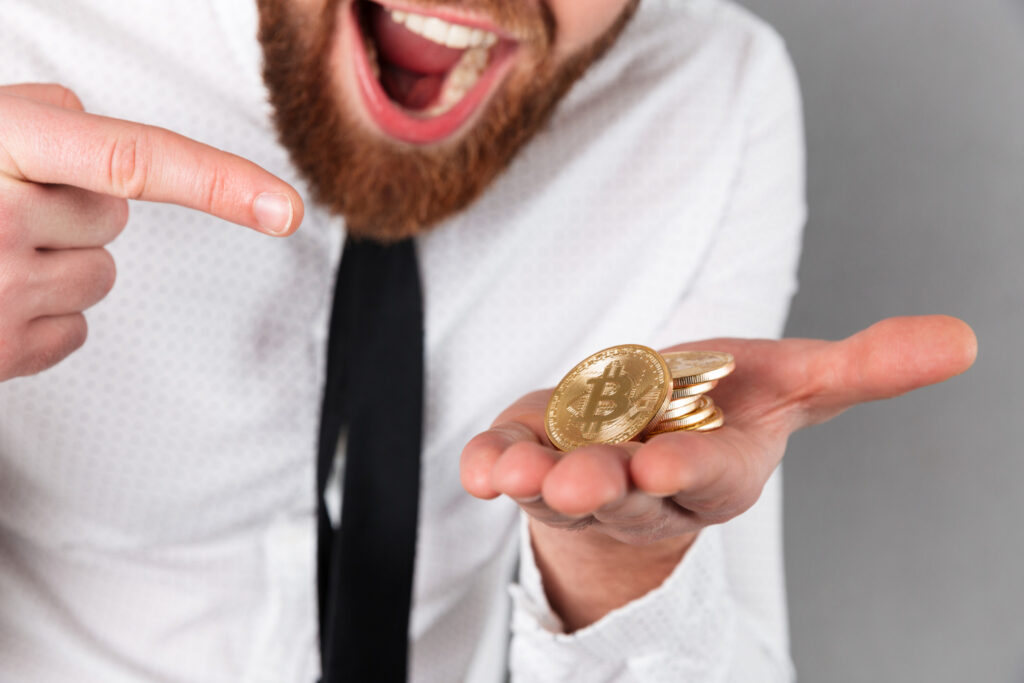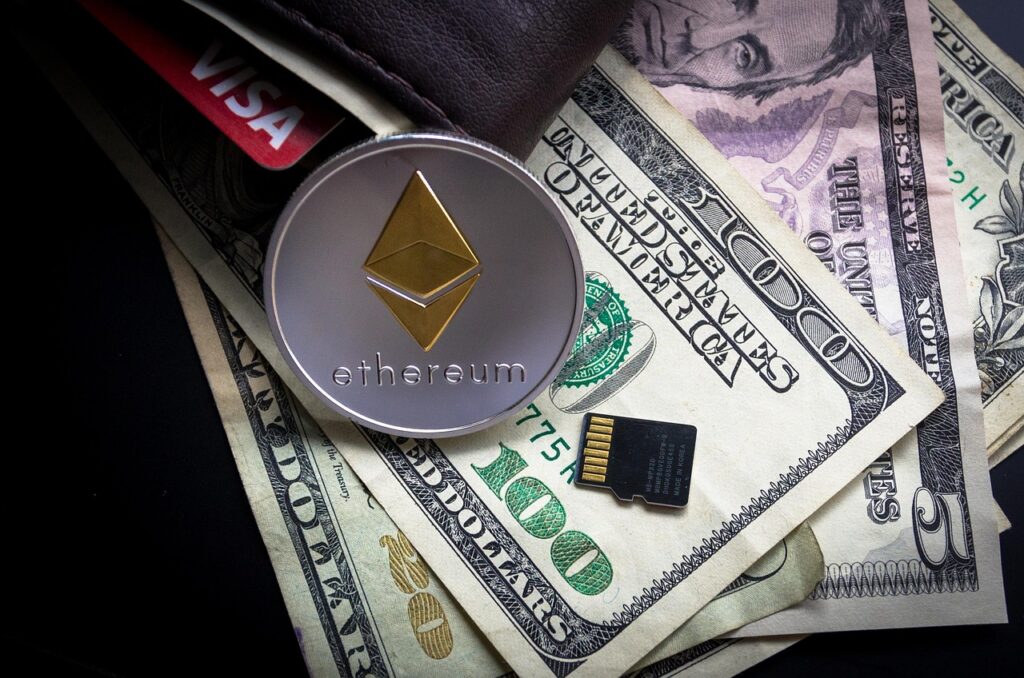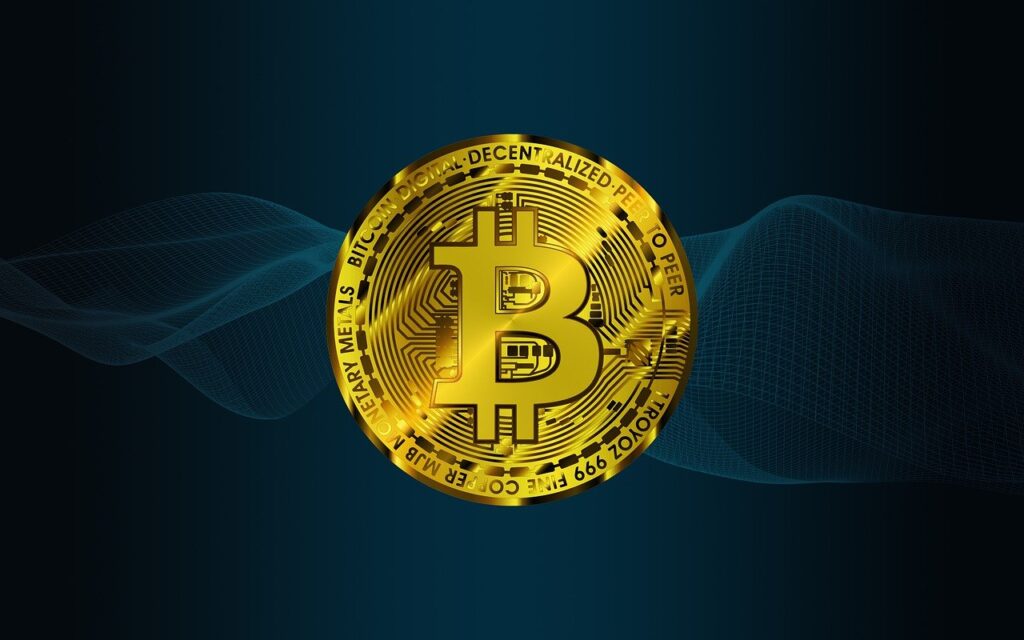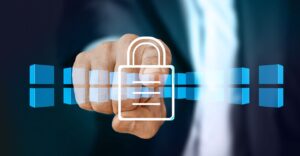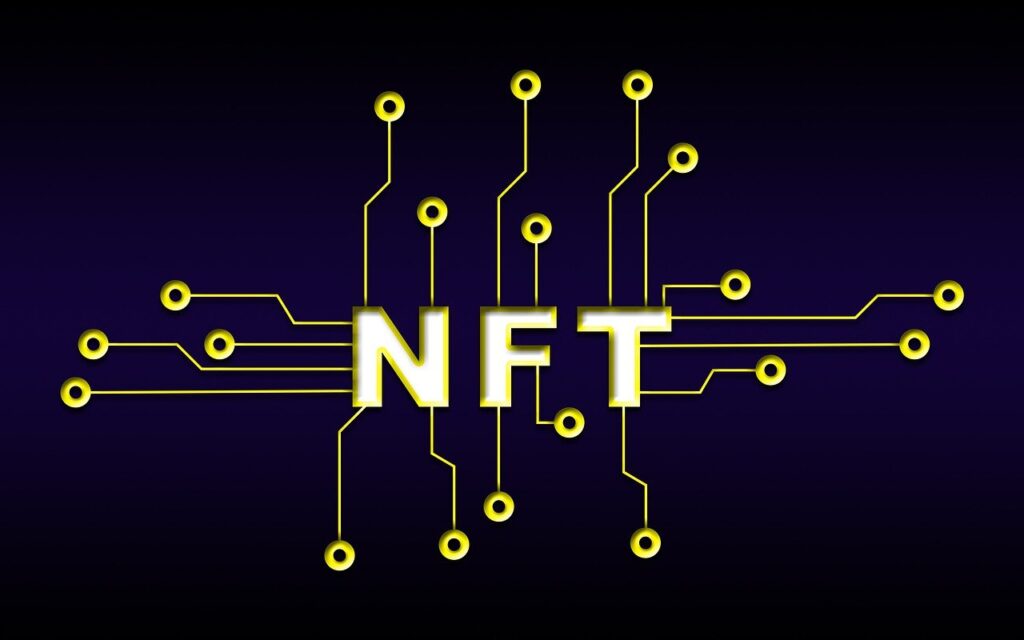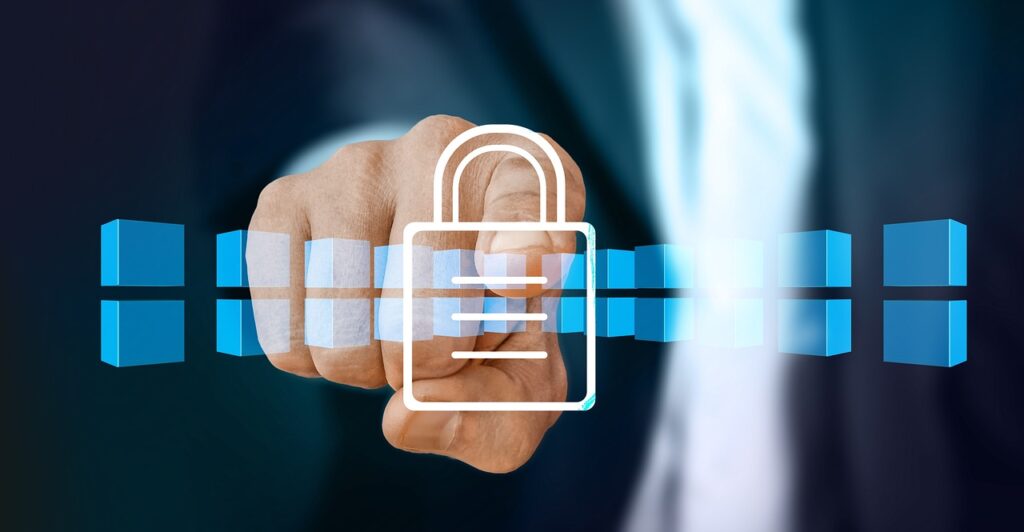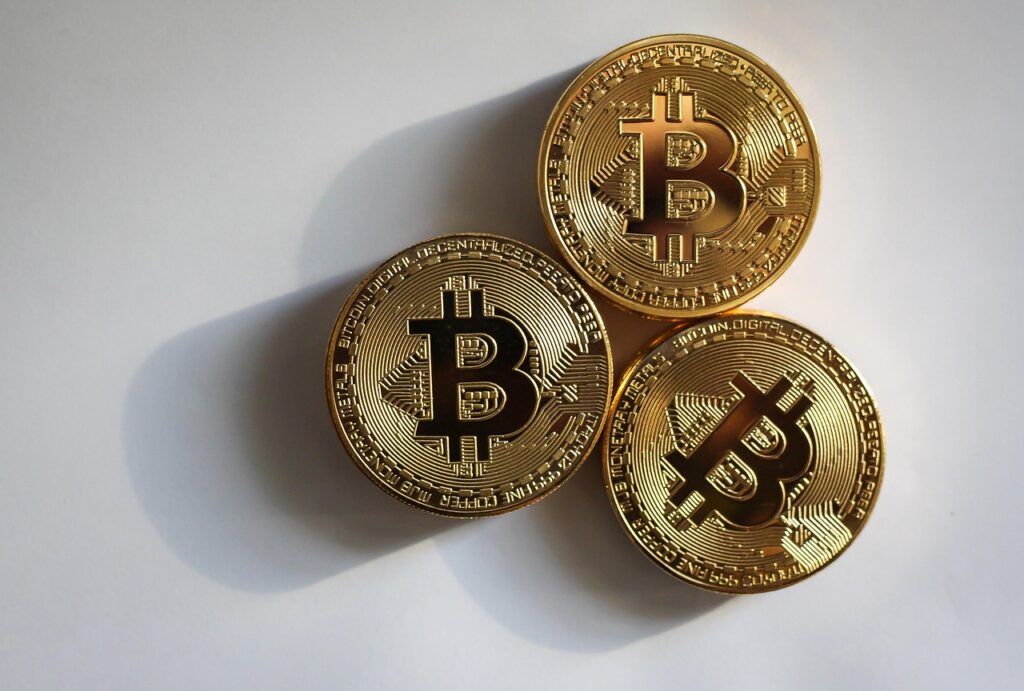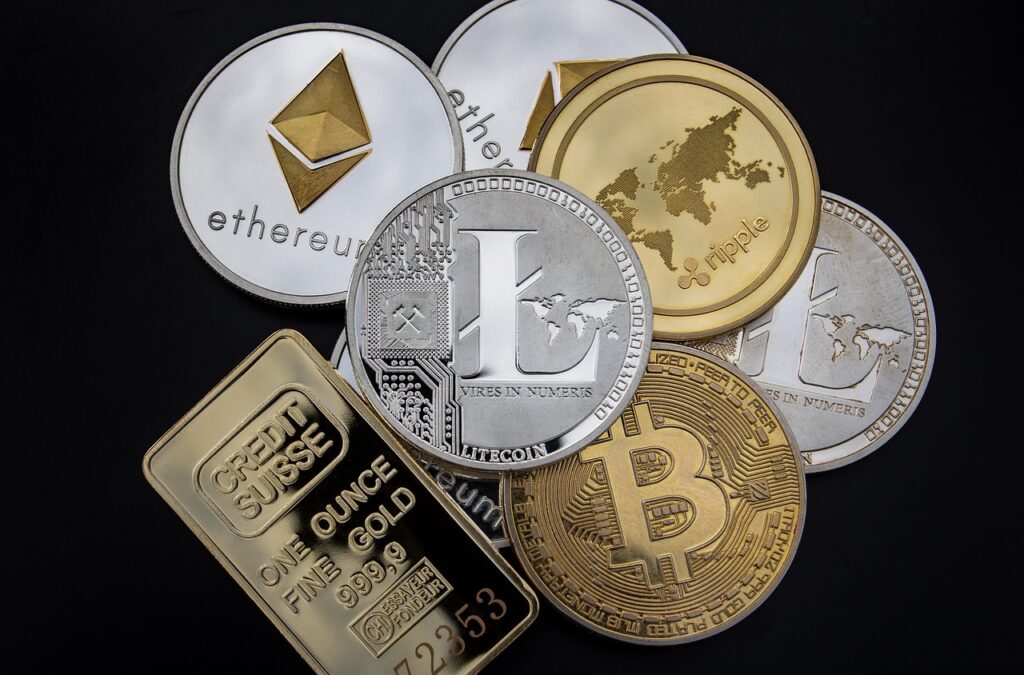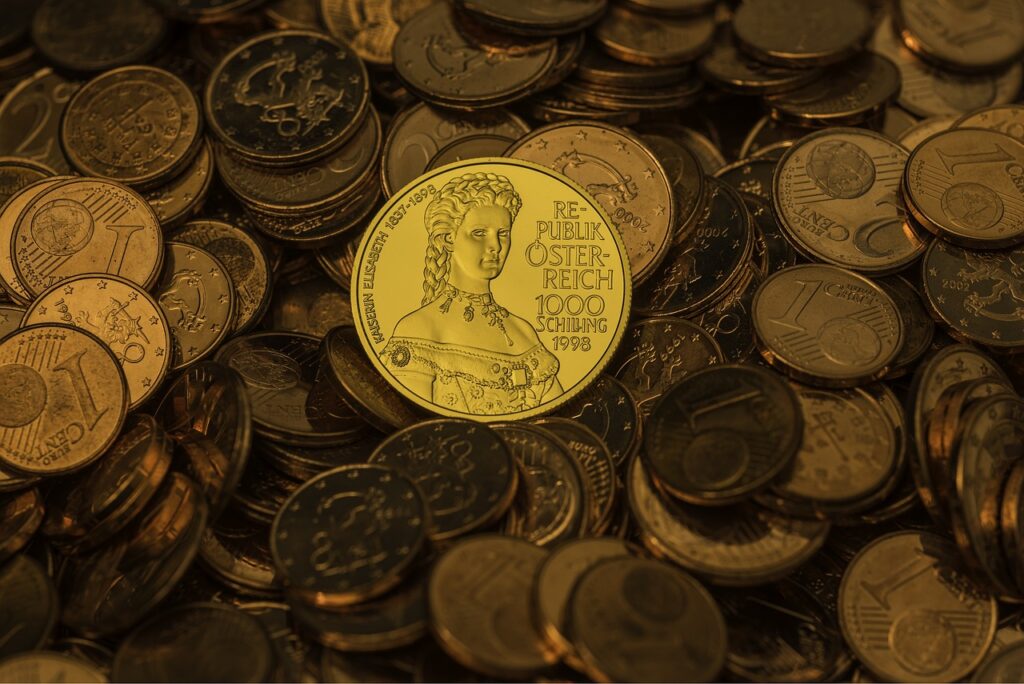Thinking about buying a lot of crypto? It’s a big step, and it’s different from just buying a little bit. This guide will walk you through everything you need to know to make a large crypto purchase safely and smartly. We’ll cover how to choose the right places to buy, what to prepare for, and how to keep your new digital assets secure.
Table of Contents
- 1 Key Takeaways
- 2 Understanding Large Crypto Purchases
- 3 Defining a Significant Crypto Acquisition
- 4 Why Large Crypto Purchases Differ
- 5 Key Considerations for High-Volume Transactions
- 6 Top Platforms for High-Volume Crypto Trading
- 7 Leading Centralized Exchanges for Large Orders
- 8 Over-the-Counter Brokerage Services
- 9 Specialized Platforms for Institutional Investors
- 10 Preparing for Your Substantial Crypto Investment
- 11 Assessing Your Financial Liquidity
- 12 Gathering Necessary Documentation
- 13 Understanding Market Volatility and Risks
- 14 Executing Your Large Crypto Acquisition
- 15 Step-by-Step Purchase Process
- 16 Securing the Best Price for Your Buy
- 17 Confirming Transaction Details and Settlement
- 18 Safeguarding Your Significant Crypto Holdings
- 19 Choosing Secure Storage Solutions
- 20 Implementing Multi-Signature Wallets
- 21 Best Practices for Digital Asset Security
- 22 Navigating Regulatory and Tax Implications
- 23 Understanding Crypto Tax Obligations
- 24 Maintaining Accurate Transaction Records
- 25 Complying with Anti-Money Laundering Regulations
- 26 Mitigating Risks in Large Crypto Transactions
- 27 Identifying and Avoiding Scams
- 28 Conclusion
- 29 Frequently Asked Questions
- 30 Is there a maximum amount of crypto I can buy?
- 31 Where should I store a large amount of crypto?
- 32 Why do large crypto purchases sometimes cost more?
- 33 What kind of paperwork do I need for a large crypto purchase?
- 34 Is it risky to buy a large amount of crypto?
- 35 What’s the best way to buy a very large amount of crypto?
Key Takeaways
- Buying a lot of crypto means you need to think about different things than if you were buying a small amount.
- It’s important to pick the right platform, whether it’s a big exchange or a special broker, when you buy crypto in bulk.
- Before you buy crypto, make sure you have enough money ready and understand that prices can change fast.
- After you buy crypto, you need to have a good plan for keeping it safe from hackers and other problems.
- Always familiarize yourself with the tax and other legal rules in your area when buying crypto, and be cautious of scams.
Understanding Large Crypto Purchases

Defining a Significant Crypto Acquisition
When we talk about a “large” crypto purchase, it’s not just about throwing a few extra bucks into Bitcoin. We’re talking about sums that can move markets, attract regulatory attention, and require a whole different approach than your average retail buy. Think hundreds of thousands, even millions, of dollars. This kind of investment isn’t something you do on a whim. It demands careful planning and a solid understanding of the crypto landscape. What one person considers a large amount, another might see as pocket change, but generally, it’s when your transaction size starts to impact liquidity or requires specialized services.
Why Large Crypto Purchases Differ
Buying a small amount of crypto is pretty straightforward. You log onto an exchange, click a few buttons, and you’re done. But when you’re dealing with significant sums, things get a lot more complex. For starters, finding enough liquidity can be a real challenge. Regular exchanges might not have enough sellers at your desired price point to fill a massive order without causing significant price slippage. This means you could end up paying more than you intended. Also, these transactions often involve different platforms and processes, like over-the-counter (OTC) desks, which are designed specifically for high-volume trades. The fees can also be structured differently, and you might even get personalized service.
Key Considerations for High-Volume Transactions
Making a big crypto buy isn’t just about having the money. There are several important things to think about before you even start. First, you need to consider the impact on the market. A huge buy order can push the price up, meaning you might pay more for later parts of your order. Conversely, a large sell order can crash the price. Second, security becomes even more critical. With so much money on the line, you become a bigger target for scammers and hackers. Third, regulatory scrutiny increases. Governments are paying more attention to large crypto transactions to prevent things like money laundering. Finally, the tax implications are substantial, and you’ll need to keep meticulous records. Transaction fees can also add up quickly on large orders, so it’s important to factor those in.
When you’re dealing with substantial amounts of crypto, the game changes entirely. It’s no longer just about buying an asset; it’s about managing a complex financial operation that requires a deep understanding of market dynamics, security protocols, and regulatory frameworks. Ignoring any of these aspects can lead to significant financial losses or legal trouble.
Top Platforms for High-Volume Crypto Trading
When you’re looking to buy a lot of crypto, the usual consumer-grade apps just won’t cut it. You need platforms built for bigger transactions, where liquidity isn’t an issue and you can get your order filled without moving the market too much. It’s a different ballgame entirely, and picking the right place to trade is a big part of making sure your purchase goes smoothly.
Leading Centralized Exchanges for Large Orders
For those making substantial crypto purchases, centralized exchanges are often the first stop. These platforms are designed to handle a lot of trading volume, which means there’s usually enough liquidity to fill large orders without causing huge price swings. Think of them like the big stock exchanges, but for crypto. They offer a pretty straightforward way to buy and sell, and many have specific features for bigger players.
- Kraken: This exchange is known for its competitive fees, which can be a big deal when you’re moving a lot of money. They’ve got a solid reputation and operate in many countries, including the US, Canada, and the UK. Their fee structure can go really low depending on how much you’re trading.
- Coinbase Advanced Trader: This is separate from the regular Coinbase app and is geared towards more serious traders. It’s one of the biggest US-based Bitcoin exchanges by volume. If you’re in the US, Europe, Canada, or the UK, this could be a good option.
- Bitstamp: Around since 2011, Bitstamp has built a name for itself with its reliability and strong security. They have good liquidity, which helps with quick execution of large trades. Their trading interface is pretty advanced, offering lots of data for making informed decisions.
Choosing a centralized exchange for large crypto purchases means you’re relying on their security measures and liquidity. It’s important to pick one with a long track record and a good reputation for handling significant transaction volumes. Always check their fee structure, as even small percentages can add up quickly on large buys.
Over-the-Counter Brokerage Services
Sometimes, even the biggest exchanges aren’t enough for truly massive crypto buys. That’s where over-the-counter (OTC) brokerage services come in. These services facilitate direct trades between two parties, often outside of the public order books of an exchange. It’s like having a private dealmaker for your crypto. This approach is great for avoiding price slippage, which happens when a large order pushes the price up or down because there isn’t enough immediate supply or demand on the regular exchange.
- Cumberland Mining: This firm is a big player in the institutional crypto space, providing liquidity to the market. They offer trading for major cryptocurrencies like Bitcoin, Ethereum, and Litecoin to institutional investors, often in large amounts using various fiat currencies.
- River Financial: If you’re only interested in Bitcoin, River Financial is a Bitcoin-only exchange based in San Francisco. They cater to those looking for a focused approach to their Bitcoin acquisitions.
- Genesis Trading: While not explicitly mentioned in the provided text, Genesis Trading is another well-known OTC desk that handles large block trades for institutional clients. They provide a personalized service for high-volume transactions.
OTC services are often the preferred method for institutional investors and high-net-worth individuals because they offer discretion and can execute trades without impacting market prices. You’ll typically work with a dedicated representative who handles your specific needs.
Specialized Platforms for Institutional Investors
Beyond the general OTC desks, there are platforms built specifically for institutional investors. These aren’t your everyday crypto apps; they’re designed with the complex needs of hedge funds, family offices, and other large financial entities in mind. They often come with advanced features like prime brokerage services, sophisticated reporting, and top-tier security.
- Prime Brokerage Services: These platforms offer a suite of services, including trade execution, custody, and financing, all tailored for institutional clients. They aim to provide a comprehensive solution for managing digital assets.
- Advanced Security Features: Institutional platforms often include multi-signature wallets and cold storage solutions as standard, providing a higher level of asset protection than typical retail exchanges.
- Regulatory Compliance: These platforms are usually built with strict regulatory compliance in mind, which is a must for institutions that need to adhere to various financial laws and reporting requirements.
These platforms are not for the casual buyer. They require significant capital and often involve a rigorous onboarding process. They are about providing a secure, compliant, and efficient way for large organizations to interact with the crypto market.
Preparing for Your Substantial Crypto Investment
Assessing Your Financial Liquidity
Before you even think about buying a lot of crypto, you need to take a hard look at your money situation. It’s not just about having enough cash; it’s about having liquid cash, meaning money you can get to quickly without selling off other stuff or getting into debt. Think about your regular bills, your emergency fund, and any other big expenses coming up. You don’t want to tie up money you might need for daily life in something as volatile as crypto.
It’s easy to get caught up in the excitement of potential gains, but a smart investor always prioritizes their financial stability. Make sure the funds you’re planning to use for crypto are truly disposable and won’t impact your ability to meet your financial obligations.
Here’s a quick checklist to help you figure out your liquidity:
- Do you have at least 3-6 months of living expenses saved in an easily accessible account?
- Are all your high-interest debts (like credit cards) paid off?
- Do you have a clear understanding of your monthly income versus expenses?
- Are there any upcoming large purchases (house, car, education) that these funds might be needed for?
Gathering Necessary Documentation
When you’re making a big crypto purchase, it’s not like buying a coffee. Platforms and brokers, especially those dealing with large sums, are going to ask for a lot of paperwork. This is mostly due to regulations like Anti-Money Laundering (AML) and Know Your Customer (KYC) laws. They need to verify who you are and where your money is coming from. Get all this stuff ready before you start the process, or you’ll just cause delays.
Common documents you’ll likely need include:
- Government-issued ID (passport, driver’s license)
- Proof of address (utility bill, bank statement from the last 3 months)
- Proof of funds (bank statements, tax returns, pay stubs, or even a letter from your bank or accountant explaining the source of your wealth)
- Sometimes, a detailed explanation of your investment goals and risk tolerance.
Understanding Market Volatility and Risks
Crypto markets are known for their wild swings. One day a coin is up 20%, the next it’s down 15%. When you’re dealing with large amounts, these percentage changes translate into significant dollar figures. It’s not just about the price going down; it’s also about the speed at which it can change. You need to be mentally prepared for these fluctuations and understand that your investment could lose a substantial portion of its value very quickly. Don’t invest money you can’t afford to lose, especially in such a dynamic market.
Executing Your Large Crypto Acquisition
Step-by-Step Purchase Process
When you’re ready to make a big crypto buy, it’s not quite like hitting “buy” on a regular exchange. There’s a bit more to it, especially if you’re dealing with an OTC desk or a broker. First off, you’ll likely have a direct line of communication with a representative. This isn’t an automated system; it’s a person who will guide you through the specifics. They’ll confirm the asset you want, the amount, and the current price. It’s important to have your funds readily accessible and in the correct currency before you even start this conversation. The market moves fast, and you don’t want to miss a good price because your money is tied up. Once the price is agreed upon, you’ll typically receive an invoice or a formal trade confirmation. This document will outline all the details, including the exact amount of crypto, the fiat currency equivalent, and the payment instructions. You’ll then initiate the payment, usually via wire transfer for large sums. After the payment clears, the crypto will be transferred to your designated wallet. This whole process can take anywhere from a few minutes to a few hours, depending on the platform and the payment method.
Making a large crypto purchase requires a methodical approach. Don’t rush into anything. Take your time to understand each step and confirm all details before committing. A small mistake can have significant financial consequences.
Securing the Best Price for Your Buy
Getting the best price for a large crypto purchase is all about timing and negotiation. Unlike smaller trades where you’re just taking the market price, with large orders, you often have some leverage. Here’s how to approach it:
- Monitor Market Depth: Look at the order books on various platforms. For very large orders, you might need to execute across multiple exchanges or use an OTC desk to avoid significant slippage.
- Negotiate with OTC Desks: OTC (Over-the-Counter) desks are designed for large transactions. They can often source liquidity without impacting the public order books, potentially giving you a better average price. Don’t be afraid to negotiate the spread or fee they charge.
- Consider Time of Day: Crypto markets are 24/7, but liquidity can vary. Sometimes, during peak trading hours in major financial centers, you might find better prices due to higher volume.
- Split Your Order: If your order is exceptionally large, consider breaking it into smaller chunks. This can help mitigate the impact on the market price and allow you to average into your position.
Confirming Transaction Details and Settlement
Once you’ve initiated your payment and the crypto transfer is underway, the final step is to confirm everything has settled correctly. This involves several checks:
- Verify Payment Confirmation: Ensure your bank or payment provider confirms the successful transfer of funds to the broker or exchange.
- Check Wallet Address: Double-check that the crypto was sent to the exact wallet address you provided. A single incorrect character can lead to irreversible loss of funds.
- Monitor Blockchain Explorer: Use a blockchain explorer to track the transaction. You can input your wallet address or the transaction ID to see its status and confirmation count. For large transactions, you’ll want to wait for a sufficient number of confirmations to ensure finality.
- Confirm Receipt in Your Wallet: Log into your wallet and confirm that the correct amount of crypto has arrived. If you’re using a hardware wallet, ensure it’s properly synced and displaying the new balance.
- Retain Records: Keep all communication, invoices, and transaction IDs. These records are vital for tax purposes and for any potential disputes. For P2P OTC crypto trading, this is especially important as it provides a paper trail for direct negotiations.
Safeguarding Your Significant Crypto Holdings
When you’ve got a lot of crypto, keeping it safe becomes a really big deal. It’s not like cash in a bank; you’re pretty much your own bank. So, you need to be super careful about how and where you store your digital assets. Think of it like protecting a treasure chest – you wouldn’t just leave it out in the open, right?
Choosing Secure Storage Solutions
Choosing the right place to keep your crypto is probably the most important decision you’ll make after buying it. For large amounts, you really want to look at cold storage options. This means your crypto isn’t connected to the internet, which makes it much harder for hackers to get to. Hot wallets, which are always online, are okay for small amounts you use regularly, but for big holdings, they’re just too risky. Hardware wallets are generally considered the gold standard for securing significant crypto investments. They’re physical devices that keep your private keys offline. You plug them in only when you need to make a transaction, and then you unplug them. It’s a bit like having a super secure USB drive for your money.
- Consider reputable brands for hardware wallets.
- Always buy directly from the manufacturer, never from third-party sellers.
- Keep your recovery seed phrase in a very safe, offline location, ideally not near the device itself.
Implementing Multi-Signature Wallets
For truly massive amounts of crypto, a single hardware wallet might not be enough. That’s where multi-signature (multisig) wallets come in. Imagine a safe that needs three keys to open, but you have five people who each hold one key, and any three of them can open it. That’s kind of how multisig works. It requires multiple approvals (signatures) to authorize a transaction. This adds a huge layer of security because even if one key is compromised, your funds are still safe. You can set up multisig with different hardware wallets, or even with trusted individuals or institutions.
Setting up a multisig wallet can be a bit more complex than a standard wallet, but the added security for large holdings is often worth the extra effort. It distributes the risk and makes it incredibly difficult for a single point of failure to compromise your assets. This method is especially popular among institutions and high-net-worth individuals who prioritize maximum security.
Best Practices for Digital Asset Security
Beyond the type of wallet you use, there are some general security habits that are just plain smart. These apply to anyone holding crypto, but they’re even more critical when you’re dealing with a lot of money.
- Never share your private keys or seed phrase with anyone. These are the keys to your crypto.
- Use strong, unique passwords for all your crypto-related accounts and enable two-factor authentication (2FA) wherever possible.
- Be wary of phishing attempts. Always double-check URLs and sender emails before clicking on links or providing information.
- Regularly update the firmware on your hardware wallets and any software you use for crypto management.
- Consider having a dedicated, clean computer for crypto transactions, free from other software that could introduce vulnerabilities.
- Educate yourself on common crypto scams and how to avoid them. Scammers are always trying new tricks.
Understanding Crypto Tax Obligations
When you get into large crypto purchases, taxes become a big deal. It’s not like buying a coffee; the government wants its share. Every country has its own rules for taxing crypto, and these can change pretty fast. You need to figure out how your local tax authority views crypto. Is it property, a currency, or something else entirely? That classification changes how it’s taxed. For example, if it’s seen as property, you might owe capital gains tax when you sell it for a profit. If it’s income, that’s a different story. It’s not just about selling either; sometimes, using crypto for purchases, staking, or even receiving it as a gift can trigger a taxable event. It’s a complex area, and ignorance isn’t an excuse. You really need to know what you’re doing or get help from someone who does. Crypto tax obligations are a serious matter.
Maintaining Accurate Transaction Records
Keeping good records is not just a suggestion; it’s a must. Especially with large crypto transactions, the tax authorities might come knocking. They want to see a clear paper trail. This means logging every single transaction: when you bought it, how much you paid, when you sold it, and for how much. You also need to track any fees involved. This isn’t just for tax season; it helps you understand your own financial position. Imagine trying to figure out your cost basis for thousands of transactions without proper records – it would be a nightmare. Many crypto platforms offer transaction history reports, but it’s often a good idea to keep your own detailed spreadsheet or use specialized crypto tax software. This way, you’re always ready if an audit comes your way.
It’s easy to think that because crypto is digital, it’s somehow invisible to the taxman. That’s a dangerous assumption. Governments are getting much better at tracking digital assets, and they’re increasingly sharing information across borders. Being proactive with your record-keeping is the best defense against future headaches and potential penalties.
Complying with Anti-Money Laundering Regulations
Anti-Money Laundering (AML) regulations are another big piece of the puzzle, especially for large crypto buys. These rules are designed to stop illegal activities like terrorism financing and money laundering. When you’re dealing with significant amounts of crypto, exchanges and brokers are legally obligated to know who you are. This is why you’ll go through a Know Your Customer (KYC) process, which involves providing personal identification documents. They might ask for your ID, proof of address, and even your source of funds. If you’re making a really big purchase, they might ask for more details than usual. It can feel intrusive, but it’s a standard part of the process for legitimate platforms. Trying to bypass these regulations can lead to your funds being frozen, accounts being closed, or even legal trouble. It’s always better to work with regulated entities and be transparent about your transactions.
Mitigating Risks in Large Crypto Transactions

Identifying and Avoiding Scams
When you’re dealing with big money in crypto, you become a bigger target for scammers. It’s just how it is. You’ve got to be super careful and question everything. Don’t just trust someone because they sound official or promise crazy returns. Always verify the identity of anyone you’re dealing with, especially if they’re pushing you to act fast. Scammers love to create a sense of urgency. Look out for these red flags:
- Unsolicited offers for investment opportunities that seem too good to be true.
- Requests for personal keys or seed phrases – never share these.
- Pressure to send crypto to an unknown wallet for
Conclusion
So, buying a lot of crypto isn’t just like picking up a few coins on an app. It’s a whole different ballgame. You’ve got to think about where you’re buying it from, how much it’s going to cost you in fees, and most importantly, how you’re going to keep it safe. There are options out there, whether it’s using a big exchange or going through an OTC broker. Just remember to do your homework, understand the risks, and make sure your security is top-notch. It’s a big step, but with the right approach, you can make it happen.
Frequently Asked Questions
Is there a maximum amount of crypto I can buy?
There’s no official limit to how much crypto you can buy. However, some platforms or services might have their own daily or weekly limits. Also, the bigger your purchase, the more checks and paperwork might be needed to follow financial rules.
Where should I store a large amount of crypto?
For big crypto amounts, it’s best to use a hardware wallet. This is a special device that keeps your crypto safe offline, making it very hard for hackers to steal. If you have a really huge amount, consider using a multi-signature wallet, which needs several approvals to move the crypto.
Why do large crypto purchases sometimes cost more?
Buying a lot of crypto often means paying a bit more than the usual price. This is because it’s harder to find someone selling such a large amount all at once, and the seller might need to gather it from different places. Think of it like buying a rare item – you might pay a premium for it.
What kind of paperwork do I need for a large crypto purchase?
When buying a lot of crypto, you’ll likely need to show documents to prove who you are and where your money comes from. This is to prevent illegal activities like money laundering. It’s a standard process for big financial deals.
Is it risky to buy a large amount of crypto?
Yes, crypto prices can go up and down a lot, even in a short time. This means the value of your large purchase could change quickly. It’s important to be ready for these ups and downs and only invest money you can afford to lose.
What’s the best way to buy a very large amount of crypto?
For large crypto purchases, you often use special services like over-the-counter (OTC) brokers or dedicated institutional platforms. These services are set up to handle big deals smoothly and often offer more personal help than regular exchanges.


